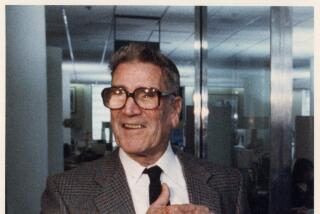British rejoice at Andy Murrayâs Wimbledon victory
LONDON--For Britain, Andy Murrayâs victory at Wimbleon on Sunday was a collective dream come true, a triumph theyâve longed for for decades.
Murray, a Scotsman whose sometimes dour, always expressive demeanor on the court did not always endear him to the rest of the nation, defeated No. 1-ranked Novak Djokovic to become the first British man to win the tennis singles championship since Fred Perry in 1936.
The last singles champion the country has produced was Virginia Wade in 1977, which seemed ordained by the stars because it coincided with the silver jubilee, the 25th anniversary of Queen Elizabeth IIâs reign. But that only sharpened the ache for a menâs winner, the lack of which was always painfully evident on the grounds of Wimbledon itself, where a statue of Perry reminded Britons of their long wait.
Previous players, particularly Tim Henman, came to symbolize British striving but also the countryâs failure to break through. Henman embodied a certain middle-class Englishness, a gentlemanly competitor who never failed to try his best but who came up short and showed his class through his grace in losing.
Murray is more of a gut player, one who may be British but is most definitely not English. He once told an interviewer that the soccer team he supported was whichever one happened to be playing against the English squad, annoying many English fans. It merely gave more credence to the shibboleth that, when he wins, the country considers Murray âBritishâ; when he loses, heâs âa Scot.â
But as he began to rack up victories, the home crowd began warming to him, and his heartfelt, weepy runnerâs-up speech at last yearâs Wimbledon final, where he lost in four sets to Swiss ace Roger Federer, rehabilitated his reputation for many detractors. Others also found his life story inspiring: As a child, he lived through the 1996 massacre of 16 boys and girls at his school in Dunblane, Scotland, by a gunman who then committed suicide.
When, just a few weeks after last yearâs Wimbledon, he won the Olympic gold medal on the same grass court against the same opponent â Roger Federer â the nation celebrated. But that was part of the overall jubilation over Britainâs excellent showing at the Summer Games in London.
Murrayâs defeat of Djokovic at the U.S. Open in September buoyed his compatriotsâ hopes further. He was now a proven Grand Slam winner, not just a three-time runner-up, and Britain sensed its moment might be near.
The shocking upsets of Federer and former champion Rafael Nadal in Murrayâs half of the draw during this yearâs tournament added to the anticipation and expectation. Commentators on the BBC and in other media spoke incessantly in their august tones of the pressure heaped on Murrayâs shoulders, the burden of the hopes of an entire nation.
ALSO:
Andy Murray ends British menâs Wimbledon drought
Egypt: Dueling Cairo demonstrations clamor to be heard
Britain deports radical Muslim preacher for trial in Jordan
More to Read
Sign up for Essential California
The most important California stories and recommendations in your inbox every morning.
You may occasionally receive promotional content from the Los Angeles Times.











